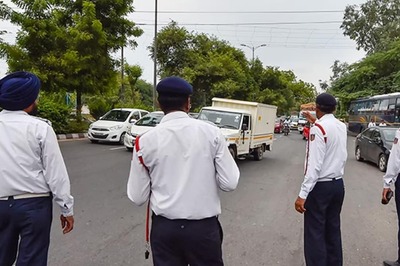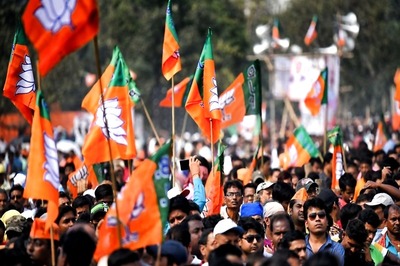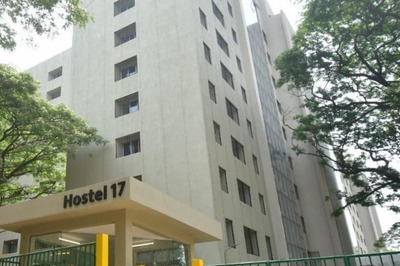
views
Our parliamentarians are hardly the first who come to mind when one thinks of professionals who burn the midnight oil. But that is exactly what happened on July 11, when the MPs sat in Lok Sabha till 11:58 pm for a marathon discussion in what was termed as a “record”.
The House sat till near midnight discussing the demands for grants for the ministry of railways. Members had raised questions on the increasing privatisation of railways, modernatisaion, revenue generation and connectivity among others. The treasury bench members were in fact told to be prepared to be in the House till early hours of the next day.
Often synonymous with poor productivity as disruptions and adjournments hamper legislative work, the Parliament has had several sessions that went into overtime ever since the Budget Session, the first of Modi government 2.0, started on June 17.
On day one itself, the Lok Sabha functioned till 6 pm. On June 24, the discussion for motion of thanks to the President’s address continued till 8pm. Then on July 8, the discussion on the Union Budget which began in the second half of the day continued till 8pm. A day later on July 9, the discussion on general budget was extended till 11pm.
This spree of extended work hours have come at a time when the Modi government is looking to push through its legislative agenda at the very beginning of its second term to get a head start for its policy initiatives. In the first session alone, the government has introduced 18 legislations.
With 10 days still to go, the productivity of the 17th Lok Sabha is highest as it has touched 116 per cent, up from the 109 high of the 16th Lok Sabha in 2014. It will be interesting to see if it can maintain the momentum, unlike the last time.
A comparison of data shows when the UPA took charge in 2004, the first session of the 14th Lok Sabha wasn’t as productive as it worked at just 64 percent. The 15th Lok Sabha’s budget session was more productive at 104 percent as the UPA had returned with a bigger mandate.
First time MP from Tejpur in Assam, Pallab Lochan Das, says many first time-MPs like him have got a chance to speak. “I come at 9.30 am and don’t know when I would go back home. I have raised issues twice in the Zero Hour. First I spoke on revival of tea industry and then raised concerns over the need for RTE act in schools which come under garden management.”
He says that during the two terms he served as an MLA, he never saw the Assam assembly function till so late.
The Prime Minister has also strictly instructed all MPs to participate in discussions and debates and sit through it even if they aren’t speaking. BJP sources said that the PM at the party’s meeting on Monday pulled up ministers who were absent from their roster duties in Parliament.
The greater speed with which legislations are being passed has also invited some criticism, with opposition leaders saying that there is a need for greater scrutiny.
They have pointed that an average of 65-70 per cent bills were referred to standing committees during previous governments, but this has come down to 26 per cent in the last couple of years.
AIMIM chief Asaduddin Owaisi, a four-time MP from Hyderabad, said “we are ready to work the whole night, we are ready to cooperate but the government should be open to the idea of sending the bills for greater scrutiny to Standing committees and respective house committees, that’s not happening. The government has brute majority and scrutiny isn’t really happening.”
The Rajya Sabha, too, has kept pace with the Lok Sabha’s efficiency as MPs ensure that the House functions. On July 1, the Rajya Sabha functioned till 8pm when Home Minister Amit Shah gave a reply on Jammu and Kashmir Reservation (Amendment) Bill 2019 and on July 11, the members discussed the Union Budget till 10 pm.
Rajya Sabha MP D Raja, who is a votary of more working days for the Parliament, says “once parties agree to work, the Parliament works seriously.”
“Members don’t have time to leave for lunch, we have to prepare for speeches and interventions. People of India should appreciate that their MPs are working. Even when agitations take place it’s also on issues concerning people of India.” He also reminded how the Rajya Sabha passed the Women’s Reservation Bill at midnight in March 2010.
In 2017, Akali Dal MP Amaresh Gujral had tabled a private member's Bill for enhancing the productivity of the Parliament. The bill had demanded that the Parliament should function for at least 100 days a year. Several MPs had raised objections saying that they have to be in their constituencies to meet people and address their concerns, and it was rejected last month.
For the first time since independence the number of women MPs is the highest at 78, though it’s still just at 14 percent. The Parliament also has a very high number of first time MPs at 300. With several firsts, the MPs are certainly hoping that the jinx of a dysfunctional parliament and public cynicism about MPs, too, will shed this time.




















Comments
0 comment